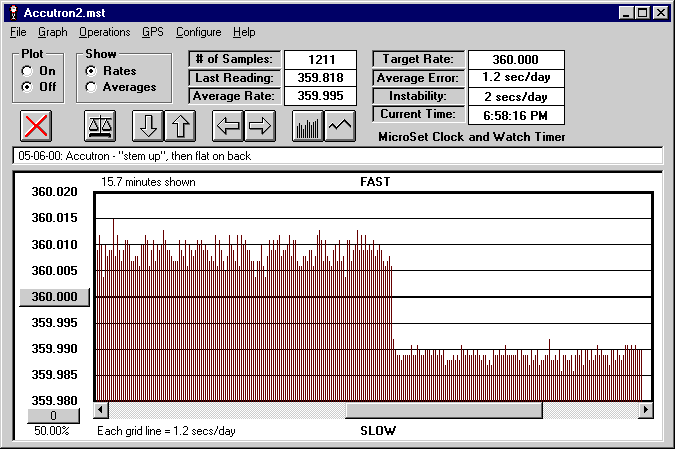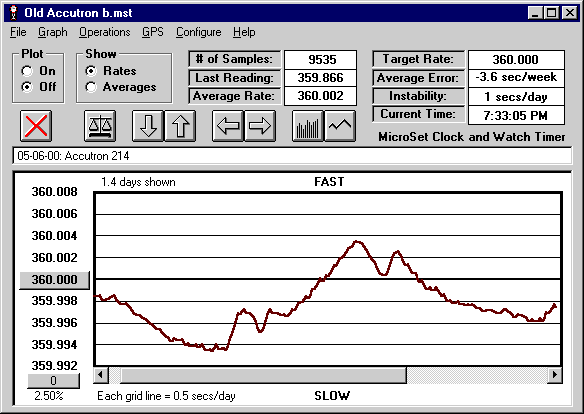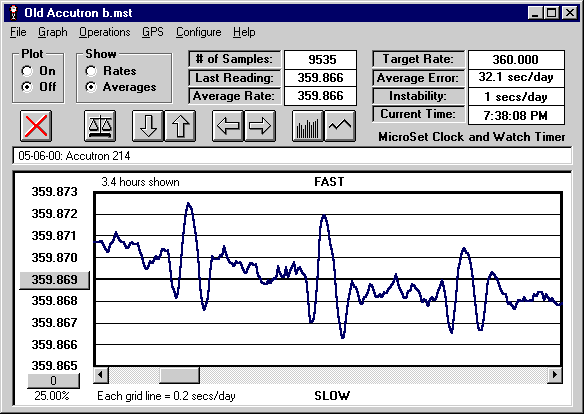MicroSet 3 and the MicroSet Watch Timer can measure Accutron watches and display either the frequency of the fork or the error in seconds per day right on the built-in LCD screen. The graphs below illustrate the analysis of an Accutron watch with Version 3 of the Windows interface software.
The correct rate of this watch is 360 Hertz. The graph shows the watch running in two different positions. At first, it was arranged with the 12 o’clock position vertical. Halfway through the measurement, the watch was laid flat on its back. The rate clearly slowed by about 5 seconds per day.

The following graph shows the response of an Accutron watch to temperature change. The watch was left sitting in a room for a day and a half. The room was warmer by 10 or 15 degrees in the afternoon than it was at night. The peak (fast) rate occurred around 7 AM. The lowest points (slow) occurred around 5 PM. There are two odd excursions of rate near the middle of the graph. I have no idea what casued them.

The following graph shows an interesting pattern in the Accutron rate as the minute hand passes the 12 o’clock position. The rate slows down, speeds up, then slows down again at each hour. This is caused by interaction between the magnetic field of the tuning fork and the steel hands. You can clearly see this event happen three times in the following graph. The Accutron service manual says:
The ACCUTRON hour and minute hands are steel. On some models, depending upon the length of these hands,
the tuning fork rate changes slightly when the hands are near the tuning fork magnets. for this reason, it is good
practice to set both hands in the lower portion of the dial before measuring the rate of an ACCUTRON timepiece
with the Rate Recorder.

The timer used in these studies was MicroSet 3 with Accutron Mode. The sensor was the inductive sensor for tuning fork and quartz watches.
